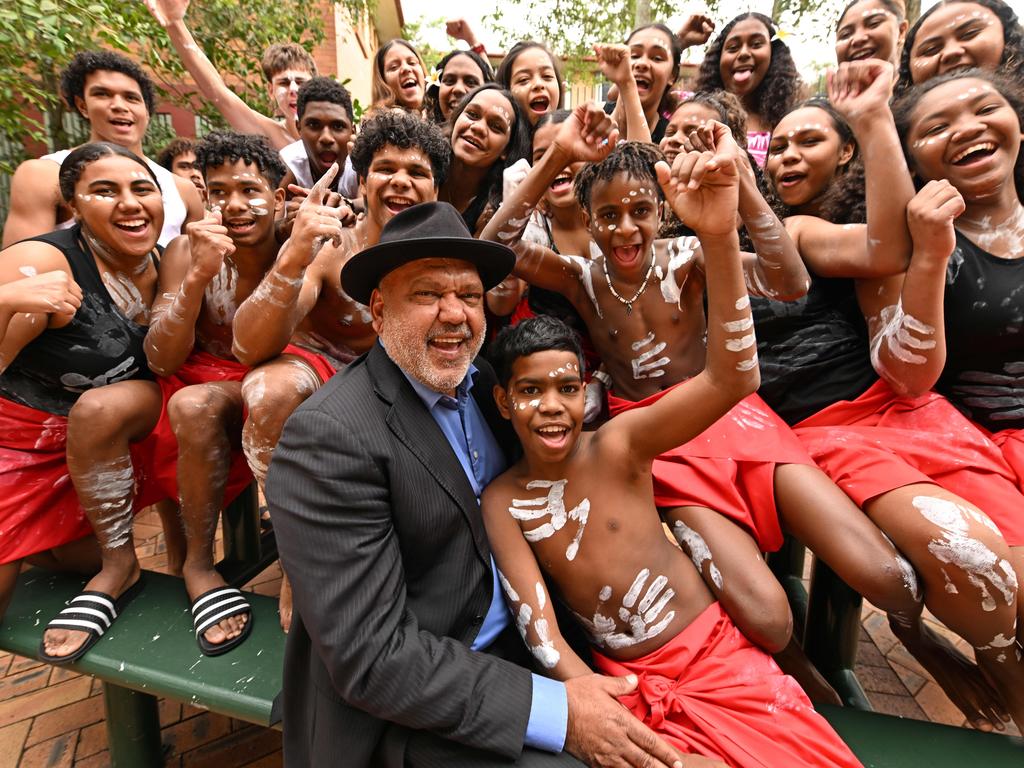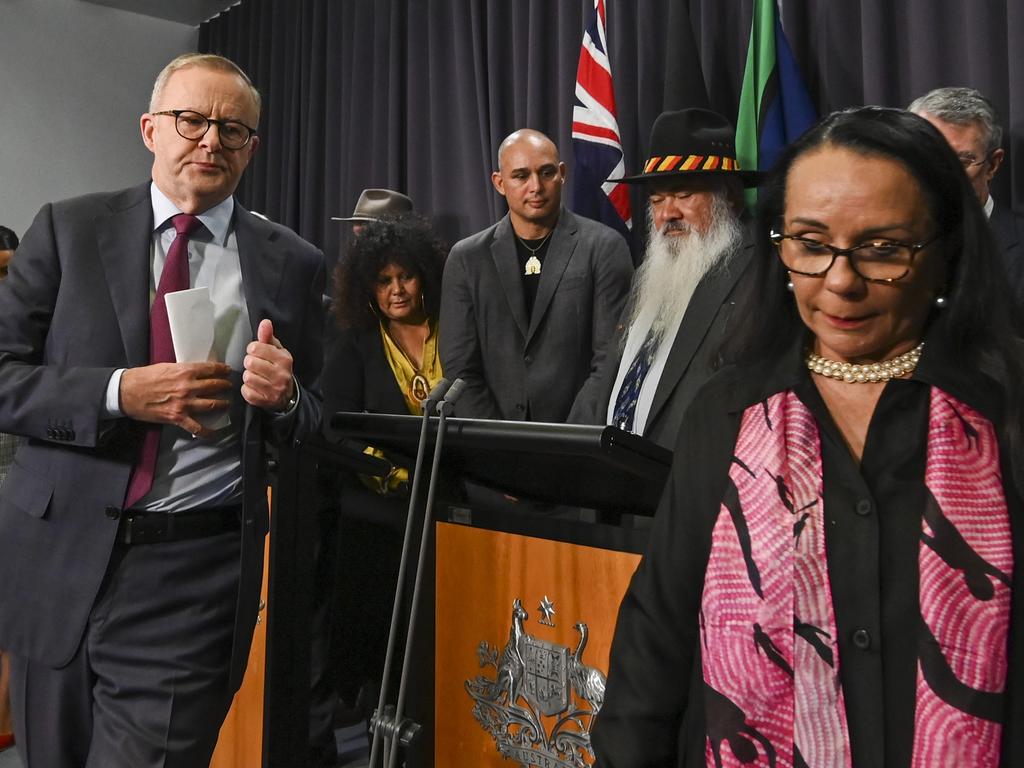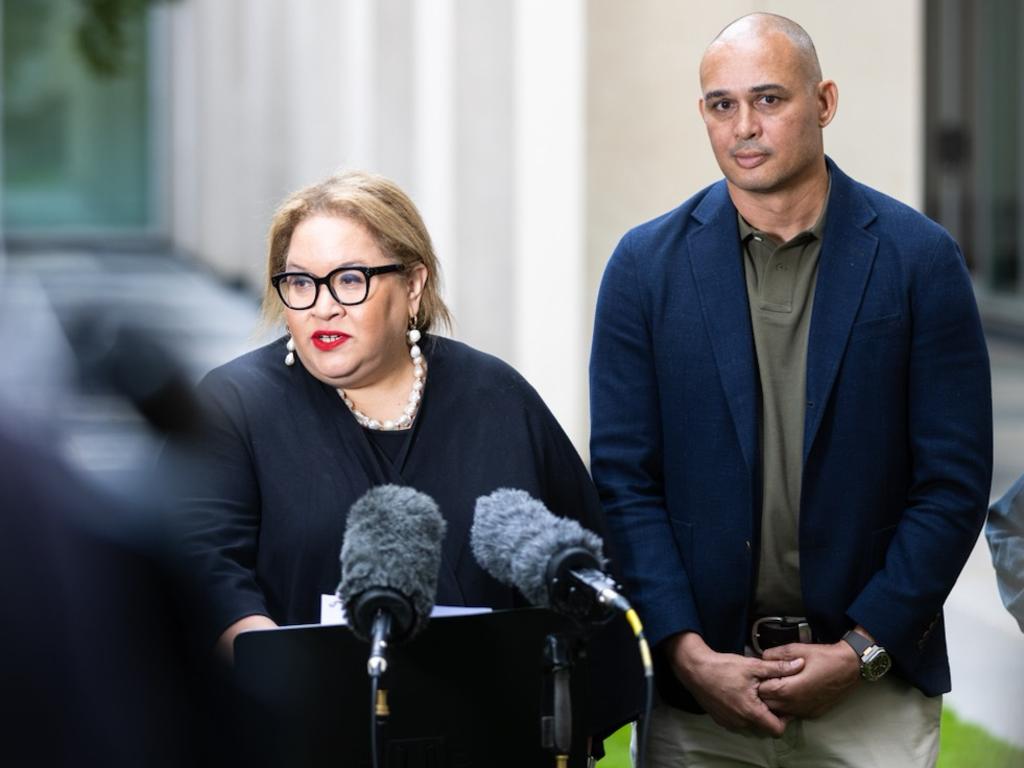Libs need values not ‘tactics’ for voice clash


For all that, Anthony Albanese surely has one thing right. Peter Dutton and the Liberals will at some point have to stop just asking questions and come up with an actual position. So far, the federal Liberals have been purely tactical on the voice. There has been no strategic decision on whether the Liberals think the voice, in principle, is a good or bad idea.
The most principled federal leadership on the issue has come from senator Jacinta Price and the federal Nationals. They are against a race-based institution. Price powerfully asked: does the voice mean Aborigines expect to be marginalised forever?

Human universalism is the heart of liberalism. It comes from the Jewish and Christian traditions. Recall St Paul: There is neither Jew nor Greek, slave nor free, male and female but you are all one in Christ Jesus.
This liberalism – historically often enough honoured in the breach it’s true – is now under attack all over the Western world by identity politics.
The voice will entrench identity politics forever. Whatever the honeyed words today, that will be an intensely destructive dynamic over time.
Conservative politics generally is in a mess. It’s wrong to read too much into the NSW election. The government was 12 years old after all. But when parties lose all sense of direction, they resort purely to day-by-day tactics. At the end, the NSW government was all tactics – buckets of cash for every voter category it could think of, just as the federal Liberals have been all tactics on the voice. But as military boffins say: tactics without strategy is noise before defeat.

The federal Liberals are happy with their voice tactics. The Albanese government has produced a terrible model for the constitutional change. We were initially told there was no chance anything in the voice would be justiciable; that is, appealable to the High Court. But Attorney-General Mark Dreyfus says the voice could make submissions on tax, welfare and foreign policy because these affect Aborigines, and that it could possibly appeal to the High Court if it thought any decision lacked sufficient consultation of the voice.
The opposition’s Julian Leeser was not stretching credulity when he pointed out that the Reserve Bank was a federal institution and therefore there was a question over how it should respond if the voice wanted advance consultation on interest rates. That’s surely an extreme case but it’s plausible within the proposed words.
That such messiness and confusion reign shows just what a bad model the government has allowed Aboriginal activists to foist on it. A more modest model would do less damage.
But my objection to the voice, and this ought to be the predominant objection of both liberals and conservatives, is that it is just wrong in principle to create or sustain race-based institutions. It’s profoundly undemocratic at two levels. It strikes against the civic equality of all Australians. One category of Australians gets two different types of votes, one in the nation’s parliament and another in the racially created new institution. That’s inherently wrong and is the sort of arrangement that over time is bound to lead to a backlash.
The other reason it’s undemocratic is that it validates the proposition that liberal democracy and the universal franchise are inadequate at dealing with or representing specific minorities. But if liberal democracy inherently fails one minority, there’s no reason why another minority might not come to the same conclusion. It’s a central feature of fascism – a frequently overused term, I agree – that liberal democracy fails the interests of the majority and so the majority is justified in imposing its will, against the normal constraints of law, on the society.
That might seem a very long distance from the sweet words that currently surround voice advocacy. But once you establish that liberal democracy is illegitimate or inadequate in its essence, there’s no logical limit to this thinking.
New Zealand is an interesting case. Under John Key, prime minister from 2008 to 2016, there was a vast movement by the government to settle all historical Maori grievances. Lots of money was paid out. The idea was the nation could then come together.
But once you legitimise identity politics it never ends. All those agreements have been up-ended and unpicked. NZ politics and society are increasingly racialised. Grievances have not been put to bed. Rather, a grievance industry has grown up, as is always the case with identity politics. As one friend from across the ditch observes: NZ used to be a successful multicultural society, now it’s a less successful bicultural society.
Identity politics always becomes irrational. Maori concepts of the “life force” have been introduced into the science curriculum and “Maori ways of knowing” given equal billing with Western science. This is irrational. No one would teach that the sun revolves around the Earth because this was once Christian belief and most Kiwis come from a Christian heritage.
Identity politics always goes crazy in a postmodern way. Its demands are endless, performative and frequently bitter. People previously without grievances suddenly discover grievances.
In liberal societies, ethnic categories don’t have rights, human beings have rights. It’s an old throwback to the darkest authoritarianism to define civic status by blood and land, or ethnicity, or connection to the royal court, or whatever.
The Aboriginal ceremonies that precede many functions these days increasingly include the claim that Aboriginal sovereignty was never ceded.

Where is this supposed to lead? Is modern Australia no longer a sovereign nation? It was shocking in Melbourne on Australia Day this year – no parades, no celebration of the achievements of the Australian nation. We will be radically less successful in welcoming immigrants if we greet them with two wicked propositions – that modern Australia is inherently illegitimate, and that Australians are permanently divided by race.
This awful referendum could well succeed because its advocates have intimidated people into not expressing reasonable opposition because all opposition is depicted as being motivated by malice and because the Yes case will be funded to tens or even hundreds of millions of dollars. And because the Liberals have been too timid to make a strategic choice, informed by elementary principles.
Tactics without strategy – noise before defeat.







If Australia votes Yes to enshrine an Aboriginal and Torres Strait Islander voice in the Constitution it will be the most radical, and damaging, change to our Constitution we’ve ever made. It will enshrine one single message, and supporting mechanism, permanently into our national life – that Australians are forever divided by race.